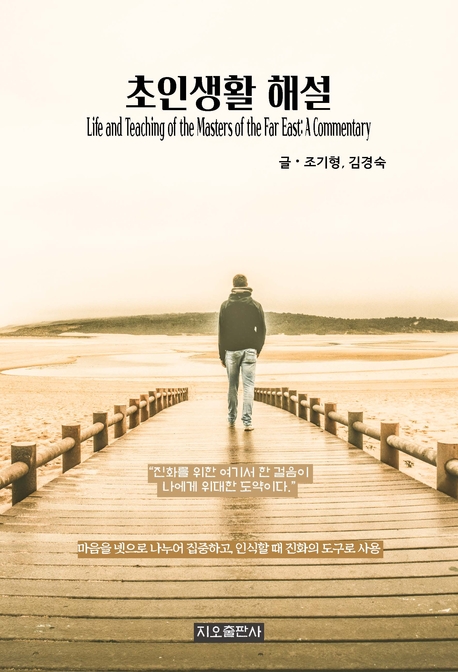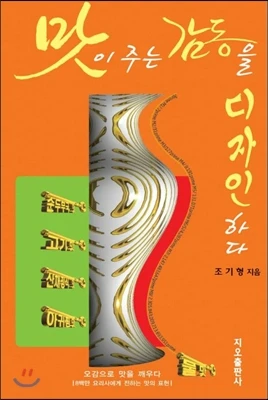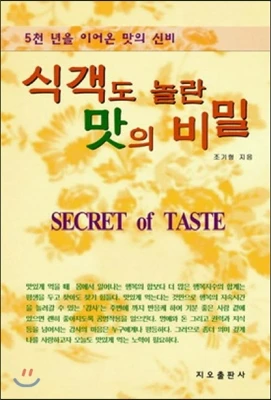Beyond the Palate: Exploring the Depths of Flavor
Taste, Sense and Express!
Elevating the feast of taste to an unforgettable experience, conveying the story of taste with a mouth full of happiness.
Books for Deep Taste
The Taste Evaluation Theory
A groundbreaking guide that systematically explores the world of taste through a multidisciplinary approach encompassing science, philosophy, and culture, presenting 75 practical evaluation criteria to elevate readers’ palates.
_The Theory of Taste Evaluation_ offers readers an in-depth opportunity to understand and experience the world of taste through scientific, philosophical, and cultural inquiries. It introduces a systematic method of taste analysis grounded in neuroscience, cognitive science, and biomechanics, and provides a practical taste evaluation questionnaire with 75 detailed criteria. This enables readers to assess and refine their sensory experiences independently.
The book delves into the roles and interactions of the five senses in the perception of taste, as well as the psychological and cultural factors influencing taste experiences. It examines the connections between taste, philosophy, religion, and culture, shedding light on how taste transcends mere sensory experience to profoundly impact human life and society.
Through a 15-step framework for savoring taste, readers are offered a roadmap to evaluate and enhance their level of sensory awareness. The guide also details how knowledge of taste evaluation can be applied in various fields, such as culinary arts, dining, the food industry, health, education, and art. This makes it a valuable resource not only for chefs, food critics, and professionals in the food industry but also for general readers seeking to refine their palate and gain practical insights.
By fostering a deep understanding of taste, the book enriches readers’ everyday dining experiences, enhances cultural sensitivity, supports the development of healthy eating habits, and provides opportunities for philosophical reflection on self and society. Ultimately, it offers a comprehensive perspective on how taste influences our lives, culture, and society, helping readers sharpen their senses, improve their quality of life, and broaden their cultural understanding. This book serves as a holistic guide to navigating the world of taste and its profound connection to human experience.
Tasting leads human consciousness to evolution
Superhuman Life is not a religious story. The gods and goddesses in it are merely representations of the laws and principles that govern the universe. Based on their own experiences, these 500-year-old masters give specific instructions on how to pray and the fundamentals of meditation. They explain the vaguer aspects of concentration and awareness, linking them to the logic of modern science and making them more concrete.
For people of faith and belief, this is an opportunity to learn new information about focus and awareness, and we have made it as easy as possible for them to enter evolution. Albert Einstein once said, “Anyone who seriously pursues science becomes convinced that there is a spirituality within the laws of the universe, a spirituality that is vastly superior to man and pales in comparison to those in power before it.”
The author first encountered the book Transpersonal Life in 1993. The book surprised him, even though he had been thinking in the category of the Bible for a decade, starting in 1984. It had a lasting impact and I read it four times over the next decade. Shortly before I encountered this book, I had my vision and mind broadened by Jesus’ words, “You shall know the truth and the truth shall set you free. I was devoted to my faith until about 2003, and then until 2012, when I turned to self-direction for evolution by applying the awareness that drives the foundation of my faith. He now has no faith boundaries and is fully conversant with people of all faiths and philosophies.
He began his search for vibrationally-enhancing meditations in 1998, and over the course of more than 20 years, he has written more than 1,000 pages of meditation experiences, deepening his acceptance of the meaning and value of vibrations. Based on the sensory perceptions that arise from this process, he has written Taste Evaluation and taught Taste Evaluation at several universities. When discussing evolution, the senses are reflected, so the way of perceiving them is connected to taste.
In order to evolve, any method must eventually lead to a habit in life. The perception of taste is optimally suited for this. When you can manipulate flavor, you can manipulate the senses, which allows you to expand the scope and density of your vibration. We are entering the foodie world to become socially prominent, but it is part of our evolutionary longing. Here, we show how the best way to perceive flavors is evolutionarily linked, and we provide examples of how the sensations of flavors can be sensitively perceived and expressed in language. The roots of flavor, which taste testers are curious about, are rooted in perception, which is a key point in evolution.
Designing the Emotion of Taste
A common frustration for chefs, foodies, and restaurateurs is the expression of flavors.
I couldn’t find any flavor descriptions in the library. There is a real poverty of flavor expression. “The Flavor Sommelier” is a collection of real-life examples of how to enjoy flavors and how to express them.
This book delves into the details of flavor so that the world of flavor, which has no boundaries or limits, can be grasped. The book is divided into sections for each of the five senses, and the flavor expressions are organized so that anyone can apply them.
Introduction:
Commonly, chefs, foodies, and restaurateurs struggle to express the nuances of taste. There is a scarcity of resources available that effectively address this issue. This book, written by a “taste sommelier,” fills this void by providing a comprehensive guide to both enjoying and expressing taste.
Key Features:
Delves into the intricate details of taste, making the seemingly boundless world of flavor tangible.
- Offers a systematic approach to describing taste, categorizing its various expressions across different sensory domains.
- Presents practical applications of these concepts, empowering readers to apply them in their own experiences.
- Shares insights and techniques from the author’s experience teaching professional foodies, providing a unique perspective.
- Serves as a valuable resource for anyone seeking to deepen their understanding and appreciation of taste.
The book also contains many of the secrets that have taught top gourmets to specialize in flavor. This is the third book on flavors, but the first to express flavors. It also describes how to check flavors in restaurants and contains extensive information on flavors. This is the first book of its kind, and it contains extensive information on flavor.
Secret of Taste
Introduction:
The number of foodies is on the rise, as is the culinary world. This book explores the meaning and role of taste from over 100 perspectives and provides essential foodie information for chefs and food lovers alike.
The Nature of Taste:
Eating well is about more than just filling your stomach; understanding flavors can help you naturally increase your appreciation for them.
Appreciating all food:
Chefs play an important role in creating delicious food, but a greater understanding of flavors will enhance your ability to create them. Taste goes beyond the tongue and encompasses multiple senses – smell, sight, sound, and touch – as well as memories, experiences, and culture.
Cultivate personal taste:
We don’t always have access to food prepared by the best chefs, but learning to appreciate flavors can make eating more enjoyable.
Stages of Taste Skills:
This book presents incremental steps to becoming a proficient palate expert, helping readers identify their current level of expertise.
Sharing the Joy of Taste:
Ultimately, this book aims to share the happiness that taste brings: the satisfaction we get from three meals a day is unparalleled, and the happiness that taste brings, accumulated over a lifetime, is like no other. Happiness is doubled when we reflect on how we enjoy taste beyond the satisfaction of satiety.
The power of flavor:
Now is the time to savor the world of flavor. There are many things going on to increase the richness of the mind, but when it reflects the power of taste, happiness is prolonged. More flavors can quickly relieve stress and enrich your mind. This book makes it easy to explore the deep world of flavors and get you on the path to becoming a foodie.
Taste Master’s Blog

Taste Evaluation Theory’ English Edition Now Published on Amazon
Taste evaluation master Gi-Hyoung Jo has published his first English ebook, Taste Evaluation Theory, on Amazon last month. This comprehensive 650-page book is a professional resource on the subject of taste. Here’s the book description This is a detailed and comprehensive guide that explores the concept of taste through historical, philosophical, and cultural perspectives, offering…

How Google Gemini thinks of Taste Evaluation
I was just curious of what Google AI Chatbot Gemini based on LLM(Large Language Model) thinks of taste eveluator as a job, asking following question. It’s not a well-known industry, but there is a job called a taste evaluator. Their job is to deeply savor and distinguish flavors and express them in language. However, in…
Jacktop Casino
Auto-generated excerpt
Официальный сайт Pinco Casino играть онлайн – Вход Зеркало.8280 (2)
Пинко Казино Официальный сайт | Pinco Casino играть онлайн – Вход, Зеркало ▶️ ИГРАТЬ Содержимое Пинко Казино – Официальный Сайт Преимущества официального сайта Играть Онлайн – Вход Зеркало – Как Играть Без Регистрации Преимущества игры без регистрации Преимущества игроков – Как играть онлайн Преимущества безопасности Если вы ищете официальный сайт Pinco Casino, то вы на…




